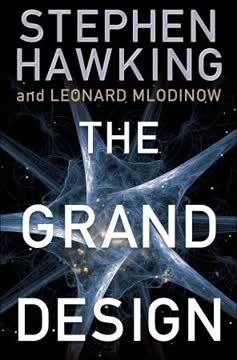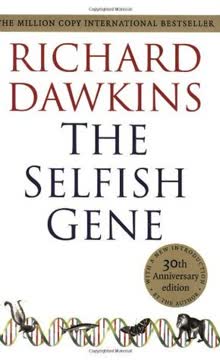Key Takeaways
1. Religion is a delusion that hinders scientific progress and rational thinking
The God Hypothesis is unnecessary.
Religion impedes progress. Throughout history, religious beliefs have hindered scientific advancement and rational thinking. The "God hypothesis" - the idea that a supernatural being created and governs the universe - is not only unnecessary but actively harmful to human progress. It discourages critical thinking and promotes acceptance of unfounded beliefs.
Science offers better explanations. Modern scientific theories like evolution and cosmology provide much more compelling and evidence-based explanations for the complexity of life and the universe than religious creation myths. Unlike religious dogma, scientific theories are constantly tested and refined based on new evidence.
Indoctrination of children. One of the most damaging aspects of religion is the indoctrination of children before they develop critical thinking skills. This perpetuates irrational beliefs and makes it difficult for people to objectively evaluate religious claims later in life.
2. Evolutionary theory explains the complexity of life without need for a creator
Natural selection is the blind watchmaker, the unconscious, automatic process which explains the existence and apparently purposeful form of all life.
Natural selection is the key. Darwin's theory of evolution by natural selection provides a comprehensive explanation for the diversity and complexity of life without requiring a supernatural creator. Through the gradual accumulation of beneficial mutations over millions of years, even the most complex biological structures can arise naturally.
No designer needed. The "appearance of design" in nature that many interpret as evidence of a creator is actually the result of natural selection favoring traits that enhance survival and reproduction. Examples like the human eye, once considered too complex to have evolved naturally, are now well understood as products of evolution.
Evolutionary evidence. The theory of evolution is supported by overwhelming evidence from multiple scientific fields:
- Fossil record showing gradual changes in species over time
- DNA similarities between related species
- Vestigial organs and structures
- Observed instances of evolution in bacteria, insects, etc.
3. Morality exists independently of religion and evolves with society
The fact that we can go against some scriptures while still remaining religious suggests that we get our morals from another source.
Morality predates religion. Human morality and ethical behavior have evolutionary roots that predate organized religion. Cooperation, empathy, and altruism provided survival advantages for early humans, laying the groundwork for more complex moral systems.
Shifting moral zeitgeist. Society's moral values have evolved significantly over time, often in opposition to religious teachings. Examples include:
- Abolition of slavery
- Women's rights and suffrage
- Acceptance of interracial and same-sex relationships
- Animal welfare concerns
Secular ethics. Philosophers and ethicists have developed robust moral frameworks without relying on religious beliefs. These include:
- Utilitarianism (maximizing overall well-being)
- Kantian ethics (universal moral principles)
- Social contract theory
- Human rights-based approaches
4. Religious fundamentalism leads to harmful absolutism and intolerance
The difference between moderation and fundamentalism is a matter of degree, not kind.
Dangers of literalism. Taking religious texts literally often leads to extreme and harmful beliefs. Fundamentalists reject scientific evidence and rational argument in favor of dogmatic adherence to ancient texts, hindering social and scientific progress.
Intolerance and violence. Religious fundamentalism frequently results in intolerance towards other beliefs and lifestyles. This can manifest as:
- Persecution of religious minorities
- Oppression of women and LGBTQ+ individuals
- Justification for violence and terrorism
- Rejection of medical treatments or scientific education
Moderates enable extremists. Even moderate religious believers contribute to the problem by promoting faith as a virtue and discouraging criticism of religious beliefs. This creates an environment where extreme interpretations can flourish unchallenged.
5. The Bible and religious texts are not reliable moral guides
The God of the Old Testament is arguably the most unpleasant character in all fiction.
Outdated morality. Religious texts like the Bible contain many moral teachings that are outdated and even abhorrent by modern standards. Examples include:
- Endorsement of slavery
- Subjugation of women
- Brutal punishments for minor offenses
- Genocide and ethnic cleansing
Cherry-picking. Most religious believers selectively interpret their sacred texts, choosing to follow some teachings while ignoring others. This undermines claims of divine moral authority and demonstrates that people rely on external moral standards.
Historical inaccuracies. Many events described in religious texts are unsupported by historical and archaeological evidence. This casts doubt on the reliability of these texts as sources of truth about the world and morality.
6. Faith is not a virtue; skepticism and evidence-based reasoning are preferable
Faith is the great cop-out, the great excuse to evade the need to think and evaluate evidence.
Faith vs. evidence. Religious faith involves believing without evidence or in spite of contrary evidence. This is fundamentally at odds with scientific and rational approaches to understanding the world.
Dangers of faith-based thinking. Valuing faith over evidence can lead to:
- Rejection of scientific discoveries
- Susceptibility to fraud and manipulation
- Inability to change beliefs when presented with new information
- Justification for harmful actions based on unfounded beliefs
Virtues of skepticism. A skeptical, evidence-based approach offers several advantages:
- Openness to new ideas and information
- Ability to correct errors and refine understanding
- Protection against manipulation and false claims
- Fostering of curiosity and continued learning
7. Religion divides people and fosters tribalism and conflict
With or without religion, good people can behave well and bad people can do evil; but for good people to do evil - that takes religion.
Us vs. them mentality. Religious beliefs often create strong in-group/out-group divisions, leading to conflict between different faiths and discrimination against non-believers.
Historical conflicts. Religion has been a major source of conflict throughout history, including:
- Crusades and religious wars
- Sectarian violence (e.g., Catholic vs. Protestant conflicts)
- Persecution of heretics and apostates
- Modern religious terrorism
Obstacle to cooperation. Religious differences can hinder cooperation on global challenges like climate change, poverty, and disease prevention. Conflicting beliefs about the afterlife or divine plans can impede united action.
8. Science provides a more awe-inspiring worldview than religion
The feeling of awed wonder that science can give us is one of the highest experiences of which the human psyche is capable.
Wonder of reality. Scientific discoveries about the universe, from the vastness of cosmic structures to the intricacies of quantum mechanics, offer a sense of awe and wonder that surpasses religious myths.
Beauty in understanding. Comprehending natural phenomena through scientific investigation provides a deeper appreciation for the world than attributing everything to divine action. Examples include:
- Understanding the evolution of complex life forms
- Grasping the immense scales of time and space in cosmology
- Exploring the fundamental laws of physics
Inspiring curiosity. Unlike dogmatic religious teachings, science encourages continued exploration and learning, constantly expanding our understanding of the world and our place in it.
9. Religious moderation enables extremism by promoting faith as a virtue
The kind of tolerance that allows religious moderates to be tolerant of fundamentalists is the same kind of tolerance that allows fundamentalists to be intolerant of everybody else.
Shielding from criticism. Religious moderates often discourage criticism of religious beliefs in general, which protects more extreme interpretations from scrutiny.
Legitimizing faith. By promoting faith as a virtue and a valid way of knowing truth, moderates create an intellectual environment where fundamentalist beliefs can flourish.
Interfaith dialogue limitations. Attempts at interfaith harmony often involve avoiding discussion of fundamental disagreements, hindering honest evaluation of religious claims.
10. Atheism is a rational position supported by scientific evidence
We are all atheists about most of the gods that humanity has ever believed in. Some of us just go one god further.
Burden of proof. The default position should be skepticism towards extraordinary claims like the existence of a god. The burden of proof lies with those making the claim, not with atheists to disprove it.
Lack of evidence. Despite centuries of philosophical and theological arguments, there is no compelling evidence for the existence of a god or gods. Scientific investigations have repeatedly found natural explanations for phenomena once attributed to divine action.
Positive atheism. Beyond simply lacking belief in gods, many atheists argue that the existence of an all-powerful, all-knowing, and benevolent deity is logically incompatible with the world we observe, particularly the existence of suffering and evil.
Human progress has historically involved moving away from supernatural explanations towards naturalistic understandings of the world. Atheism represents the continuation of this trend, embracing reason and evidence over faith and tradition.
Human progress has historically involved moving away from supernatural explanations towards naturalistic understandings of the world. Atheism represents the continuation of this trend, embracing reason and evidence over faith and tradition.
Human progress has historically involved moving away from supernatural explanations towards naturalistic understandings of the world. Atheism represents the continuation of this trend, embracing reason and evidence over faith and tradition.
Last updated:
FAQ
What's The God Delusion about?
- Critique of Religion: The God Delusion by Richard Dawkins critiques theism and argues against the existence of a supernatural deity, presenting a case for atheism.
- Consciousness-Raising: Dawkins aims to raise awareness about atheism as a viable worldview, encouraging readers to see it as a path to a happy and moral life.
- Scientific Perspective: The book uses scientific reasoning to debunk arguments for God's existence, emphasizing natural selection and science's power to explain the universe.
Why should I read The God Delusion?
- Intellectual Challenge: It provides a rigorous examination of religious beliefs, encouraging critical thinking and skepticism.
- Cultural Relevance: Dawkins addresses contemporary issues related to religion's influence on society, politics, and education.
- Empowerment for Atheists: The book offers support and validation for atheism, empowering readers to embrace non-belief without fear.
What are the key takeaways of The God Delusion?
- Arguments Against God: Dawkins dismantles arguments for God's existence, asserting they lack empirical support.
- Evolution as Explanation: The book emphasizes Darwinian evolution as a powerful explanation for life's complexity, countering intelligent design.
- Morality Without Religion: Dawkins argues that morality can arise from evolutionary processes and social cooperation, independent of divine guidance.
What are the best quotes from The God Delusion and what do they mean?
- "Imagine a world without religion.": This quote suggests that many societal problems could be alleviated without religious influence.
- "The God Hypothesis is a scientific hypothesis.": Dawkins emphasizes the need for evidence and rational inquiry in discussions about God's existence.
- "There is no such thing as a Muslim child.": This statement advocates for recognizing children's autonomy in forming their own beliefs.
How does Richard Dawkins address morality in The God Delusion?
- Evolutionary Basis of Morality: Dawkins argues that moral instincts have evolved through natural selection, independent of religious teachings.
- Moral Universals: He posits that there are moral universals transcending cultural and religious boundaries, indicating a shared human morality.
- Critique of Religious Morality: Dawkins argues that many moral principles predate organized religion and can be understood through a secular lens.
What is the God Hypothesis according to Richard Dawkins?
- Definition of God Hypothesis: It posits that a supernatural intelligence created and designed the universe, which Dawkins argues lacks empirical evidence.
- Critique of the Hypothesis: Dawkins contends that natural processes, particularly evolution, provide sufficient explanations without invoking a deity.
- Scientific Scrutiny: He encourages analyzing the God Hypothesis with the same rigor applied to scientific theories.
How does Richard Dawkins address the problem of evil in The God Delusion?
- Incompatibility with a Good God: Dawkins argues that the existence of evil and suffering is incompatible with an all-powerful, benevolent God.
- Theodicy Critique: The book critiques theological attempts to justify evil, finding them inadequate and often contradictory.
- Natural Explanations: Dawkins emphasizes that suffering can be explained through natural processes rather than divine intervention.
What is the Ultimate 747 argument in The God Delusion?
- Definition of the Argument: It posits that if complexity requires a designer, then the designer itself would require an explanation.
- Complexity Requires Explanation: Dawkins argues that natural processes, like evolution, explain complexity better than invoking a designer.
- Critique of Religious Explanations: The argument critiques religious explanations for life's existence, asserting natural selection as a more coherent framework.
How does Richard Dawkins view the relationship between science and religion in The God Delusion?
- Conflict Between Science and Religion: Dawkins argues they are fundamentally incompatible, offering conflicting explanations for phenomena.
- Science as Understanding: He advocates for science as the best method for understanding the universe, hindered by religious dogma.
- Call for Secularism: Dawkins calls for secular education and policy, emphasizing critical thinking and skepticism.
How does Richard Dawkins differentiate between atheism and agnosticism in The God Delusion?
- Clear Definitions: Atheism is the lack of belief in gods, while agnosticism is uncertainty about their existence.
- Personal Stance: Dawkins identifies as an atheist, arguing that evidence for God is insufficient.
- Critique of Agnosticism: He critiques agnosticism for indecisiveness, suggesting it's more rational to reject unfounded beliefs.
What role does science play in The God Delusion?
- Foundation of Arguments: Dawkins uses scientific reasoning, particularly from evolutionary biology, to challenge religious claims.
- Critique of Faith-Based Beliefs: He argues that faith undermines scientific inquiry, promoting a worldview grounded in science and reason.
- Promotion of Rational Thought: The book encourages skepticism and critical thinking, advocating for a science-based understanding of the world.
What are the implications of The God Delusion for society?
- Encouragement of Atheism: Dawkins hopes the book encourages questioning religious beliefs and considering atheism as a valid alternative.
- Critique of Religious Influence: The book critiques religion's influence on politics and education, advocating for separation of church and state.
- Promotion of Rational Discourse: Dawkins emphasizes rational discourse in addressing moral and ethical issues, rather than relying on religious dogma.
Review Summary
The God Delusion receives mixed reviews, with some praising its logical arguments against religion and others criticizing its tone as condescending. Many readers appreciate Dawkins' scientific approach and find the book enlightening, while others feel it lacks understanding of religious experiences. Some view it as an important work for atheists, while others see it as preaching to the choir. The book's discussions on morality, evolution, and the negative impacts of religion are frequently mentioned. Overall, it's seen as a thought-provoking read, even if not universally persuasive.
Similar Books










Download PDF
Download EPUB
.epub digital book format is ideal for reading ebooks on phones, tablets, and e-readers.













